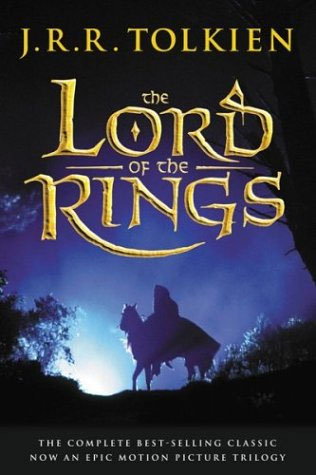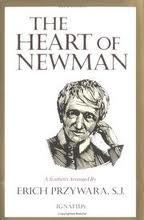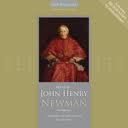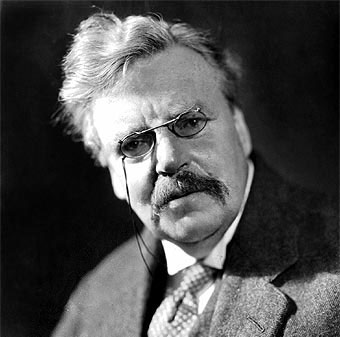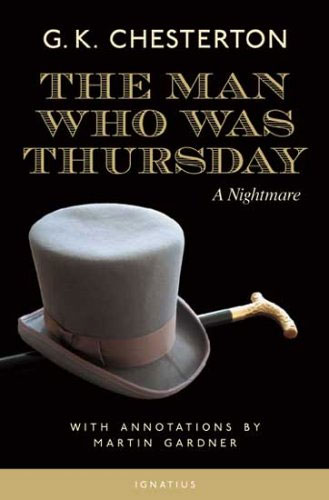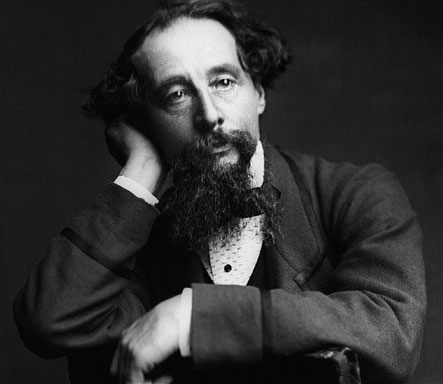[powerpress]
Episode 6- Great Works in Western Literature with Joseph Pearce – Jonathan Swift
Gulliver’s Travels by Jonathan Swift is one of the greatest satirical works ever written. Through the misadventures of 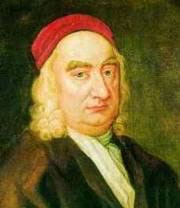 Lemuel Gulliver, his hopelessly “modern†protagonist, Swift exposes many of the follies of the English Enlightenment, from its worship of science to its neglect of traditional philosophy and theology. Swift’s satire on the threats posed by the Enlightenment and the embryonic spirit of secular fundamentalism makes Gulliver’s Travels priceless reading for today’s defenders of tradition.
Lemuel Gulliver, his hopelessly “modern†protagonist, Swift exposes many of the follies of the English Enlightenment, from its worship of science to its neglect of traditional philosophy and theology. Swift’s satire on the threats posed by the Enlightenment and the embryonic spirit of secular fundamentalism makes Gulliver’s Travels priceless reading for today’s defenders of tradition.
Based on the Ignatius Critical Edition, this series examines, from the Judeo-Christian perspective, the life,the times, and influence of authors of great works in literature .

Joseph Pearce is currently the Writer-in-Residence and Visiting Fellow at Thomas More College of Liberal Arts in Merrimack, New Hampshire. He is also Visiting Scholar at Mount Royal Academy in Sunapee, New Hampshire. He is also Visiting Scholar at Mount Royal Academy in Sunapee, New Hampshire. He is  co-editor of the Saint Austin Review (or StAR), an international review of Christian culture, literature, and ideas published in England (Family Publications) and the United States (Sapientia Press). He is also the author of many books, including literary biographies of Solzhenitsyn, J. R. R. Tolkien, C. S. Lewis, G. K. Chesterton, and Oscar Wilde..
To learn more about the authors and titles available in the Ignatius Critical Editions
Tags: ave maria university, catholic, catholic podcast, catholic prayer, cathollc spirituality, English Enlightenment, ignatius press, ignatius press critical editions, jonathan swift, joseph pearce, Lemuel Gulliver, literary biographies, sapientia press, theology, works
This entry was posted on Monday, December 29th, 2014 at 8:20 am
You can follow any responses to this entry through the RSS 2.0 feed.
 Episode 22Â – Great Works in Western Literature with Joseph Pearce -Â J.R.R. Tolkien “The Lord of the Rings”
Episode 22Â – Great Works in Western Literature with Joseph Pearce -Â J.R.R. Tolkien “The Lord of the Rings”
[powerpress]
“In brief, however, the power of Tolkien lies in the way that he succeeds, through myth, in making the 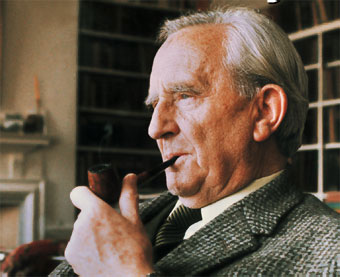 unseen hand of providence felt by the reader. In his mythical creations, or sub-creations as he would call them, he shows how the unseen hand of God is felt far more forcefully in myth than it is ever felt in fiction. Paradoxically, fiction works with facts, albeit invented facts, whereas myth works with truth, albeit truth dressed in fancy disguises. Furthermore, since facts are physical and truth is metaphysical, myth, being metaphysical, is spiritual.”
unseen hand of providence felt by the reader. In his mythical creations, or sub-creations as he would call them, he shows how the unseen hand of God is felt far more forcefully in myth than it is ever felt in fiction. Paradoxically, fiction works with facts, albeit invented facts, whereas myth works with truth, albeit truth dressed in fancy disguises. Furthermore, since facts are physical and truth is metaphysical, myth, being metaphysical, is spiritual.”
–Joseph Pearce. “J.R.R. Tolkien: Truth and Myth.” Lay Witness (September 2001)Â Â —
Joseph Pearce is currently the Writer-in-Residence and Visiting Fellow at Thomas More College of Liberal Arts in Merrimack, New Hampshire. He is also Visiting Scholar at Mount Royal Academy in Sunapee, New Hampshire. He is also Visiting Scholar at Mount Royal Academy in Sunapee, New Hampshire. He is co-editor of the Saint Austin Review (or StAR), an international review of Christian culture, literature, and ideas published in England (Family Publications) and the United States (Sapientia Press). He is also the author of many books, including literary biographies of Solzhenitsyn, J. R. R. Tolkien, C. S. Lewis, G. K. Chesterton, and Oscar Wilde.
This entry was posted on Monday, December 8th, 2014 at 9:18 am
You can follow any responses to this entry through the RSS 2.0 feed.
Episode 5 – Great Works in Western Literature with Joseph Pearce – Charles Dickens
 St. Pope John Paul II described Dickens’ books as “filled with love for the poor and a sense of social regeneration . . . warm with imagination and humanity”. Such true charity permeates Dickens’ novels and ultimately drives the characters either to choose regeneration or risk disintegration. In Great Expectations, Pip — symbolic of the pilgrim convert — gains both improved fortunes and a growth in wisdom, but as he acquires the latter, he must relinquish the former — ending with a wealth of profound goodness, not of worldly goods.
St. Pope John Paul II described Dickens’ books as “filled with love for the poor and a sense of social regeneration . . . warm with imagination and humanity”. Such true charity permeates Dickens’ novels and ultimately drives the characters either to choose regeneration or risk disintegration. In Great Expectations, Pip — symbolic of the pilgrim convert — gains both improved fortunes and a growth in wisdom, but as he acquires the latter, he must relinquish the former — ending with a wealth of profound goodness, not of worldly goods.
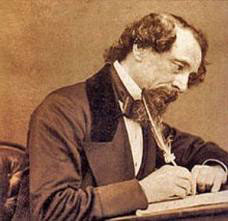 That the Dickensian message was a Christian one is unmistakable. Reminiscent of an Augustinian model, one of reflection, conversion, and moral improvement, Pip undergoes an internal change that manifests itself in his profound contrition for his earlier deeds and his equally profound resolution to make amends. As we travel with Pip, we find that Dickens leads us to an acceptance of worldly limitations and an anticipation of final salvation.
That the Dickensian message was a Christian one is unmistakable. Reminiscent of an Augustinian model, one of reflection, conversion, and moral improvement, Pip undergoes an internal change that manifests itself in his profound contrition for his earlier deeds and his equally profound resolution to make amends. As we travel with Pip, we find that Dickens leads us to an acceptance of worldly limitations and an anticipation of final salvation.
[powerpress]
 Based on the Ignatius Critical Edition, this series examines, from the Judeo-Christian perspective, the life,the times, and influence of authors of great works in literature .
Based on the Ignatius Critical Edition, this series examines, from the Judeo-Christian perspective, the life,the times, and influence of authors of great works in literature .
Joseph Pearce is currently the Writer-in-Residence and Visiting Fellow at Thomas More College of Liberal Arts in Merrimack, New Hampshire. He is also Visiting Scholar at Mount Royal Academy in Sunapee, New Hampshire. He is also Visiting Scholar at Mount Royal Academy in Sunapee, New Hampshire. He is co-editor of the Saint Austin Review (or StAR), an international review of Christian culture, literature, and ideas published in England (Family Publications) and the United States (Sapientia Press). He is also the author of many books, including literary biographies of Solzhenitsyn, J. R. R. Tolkien, C. S. Lewis, G. K. Chesterton, and Oscar Wilde.
To learn more about the authors and titles available in the Ignatius Critical Editions
Tags: ave maria university, catholic, catholic podcast, catholic prayer, cathollc spirituality, charles dickens, contrition, conversion, critical edition, ignatius press critical editions, joseph pearce, literary biographies, love, pope john paul, reflection
This entry was posted on Tuesday, November 25th, 2014 at 4:20 pm
You can follow any responses to this entry through the RSS 2.0 feed.
Episode 3 – Great Works in Western Literature with Joseph Pearce – Mary Shelley
Mary Shelley’s Frankenstein is one of the most influential and controversial novels of the nineteenth century; but has also become one of the most misunderstood and misinterpreted. It has been vivisected critically by latter-day Victor Frankenstein’s who have transformed the meanings emergent from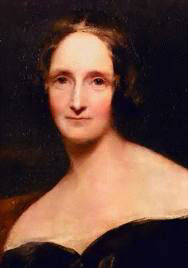 the novel into monsters of postmodern misconception. Rather than understanding Frankenstein and his monster through the lens of tradition, the moderns have seized upon the book and carried off bits to construct their own particular bogeymen.
the novel into monsters of postmodern misconception. Rather than understanding Frankenstein and his monster through the lens of tradition, the moderns have seized upon the book and carried off bits to construct their own particular bogeymen.
Seldom has a work of fiction suffered so scandalously from the slings and arrows of outrageous criticism. This critical edition, containing tradition-oriented essays by literary scholars, refutes the errors and serves as an antidote to the poison that has contaminated the critical understanding of this classic gothic novel.
[powerpress]
Based on the Ignatius Critical Edition, this series examines, from the Judeo-Christian perspective, the life,the times, and influence of authors of great works in literature .

Joseph Pearce is currently the Writer-in-Residence and Visiting Fellow at Thomas More College of Liberal Arts in Merrimack, New Hampshire. He is also Visiting Scholar at Mount Royal Academy in Sunapee, New Hampshire. He is also Visiting Scholar at Mount Royal Academy in Sunapee, New Hampshire. He is  co-editor of the Saint Austin Review (or StAR), an international review of Christian culture, literature, and ideas published in England (Family Publications) and the United States (Sapientia Press). He is also the author of many books, including literary biographies of Solzhenitsyn, J. R. R. Tolkien, C. S. Lewis, G. K. Chesterton, and Oscar Wilde.
To learn more about the authors and titles available in the Ignatius Critical Editions
Tags: ave maria university, catholic, catholic podcast, catholic prayer, cathollc spirituality, frankenstein, ignatius press, ignatius press critical editions, joseph pearce, mary shelley, New Hampshire, Victor Frankenstein, work
This entry was posted on Thursday, October 16th, 2014 at 10:27 am
You can follow any responses to this entry through the RSS 2.0 feed.
We will be praying with and learning from Blessed John Henry Newman for many, many years to come.  Joseph Pearce has been a wonderful student, as well as instructor of (or should I say “illuminator of”) the life and work of  this great man, John Henry Newman, and who is now a bona fide memeber of the Cloud of Witnesses. It’s ALWAYS a joy to talk with Joseph, but it was really fantastic to speak with him in particular about Blessed John Henry Newman and the new books released by Ignatius Press to help us grow in our awareness of him!
Joseph Pearce has been a wonderful student, as well as instructor of (or should I say “illuminator of”) the life and work of  this great man, John Henry Newman, and who is now a bona fide memeber of the Cloud of Witnesses. It’s ALWAYS a joy to talk with Joseph, but it was really fantastic to speak with him in particular about Blessed John Henry Newman and the new books released by Ignatius Press to help us grow in our awareness of him!
[powerpress]
Tags: Blessed John Henry Newman, catholic, catholic podcast, catholic prayer, cathollc spirituality, ignatius press, john henry newman, joseph pearce, work
This entry was posted on Thursday, October 9th, 2014 at 10:49 am
You can follow any responses to this entry through the RSS 2.0 feed.
Episode 2 – Great Works in Western Literature with Joseph Pearce – Emily Bronte [powerpress]
[powerpress]
Wuthering Heights is one of the classic novels of nineteenth century romanticism. As a major work of modern literature it retains its controversial status. What was Emily Brontë’s intention? Were her 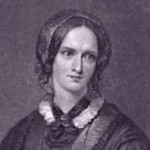 intentions iconoclastic? Were they feminist? Were they Christian or post-Christian? Who are the heroes and the villains in this dark masterpiece? Are there any heroes? Are there any villains?
intentions iconoclastic? Were they feminist? Were they Christian or post-Christian? Who are the heroes and the villains in this dark masterpiece? Are there any heroes? Are there any villains?
 Based on the Ignatius Critical Edition, this series examines, from the Judeo-Christian perspective, the life,the times, and influence of authors of great works in literature .
Based on the Ignatius Critical Edition, this series examines, from the Judeo-Christian perspective, the life,the times, and influence of authors of great works in literature .
Joseph Pearce is currently the Writer-in-Residence and Visiting Fellow at Thomas More College of Liberal Arts in Merrimack, New Hampshire. He is also Visiting Scholar at Mount Royal Academy in Sunapee, New Hampshire. He is also Visiting Scholar at Mount Royal Academy in Sunapee, New Hampshire. He is  co-editor of the Saint Austin Review (or StAR), an international review of Christian culture, literature, and ideas published in England (Family Publications) and the United States (Sapientia Press). He is also the author of many books, including literary biographies of Solzhenitsyn, J. R. R. Tolkien, C. S. Lewis, G. K. Chesterton, and Oscar Wilde.
To learn more about the authors and titles available in the Ignatius Critical Editions
Tags: ave maria university, catholic, catholic podcast, catholic prayer, cathollc spirituality, emily bronte, ignatius press, ignatius press critical editions, joseph pearce, literature, oscar wilde, work, works, wuthering heights
This entry was posted on Wednesday, October 1st, 2014 at 11:36 am
You can follow any responses to this entry through the RSS 2.0 feed.
 Episode 21 – Great Works in Western Literature with Joseph Pearce – T.S. Eliot and “The Waste Land”
Episode 21 – Great Works in Western Literature with Joseph Pearce – T.S. Eliot and “The Waste Land”
(Of special note: excerpts from “The Waste Land” are read by T. S. Eliot)
[powerpress]
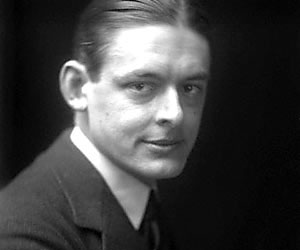 “Eliot’s place as a poet of the highest stature is assured. The Waste Land is the quintessential debunking of modernity and is also, simultaneously, a potent antidote to the poison of postmodernism..”
“Eliot’s place as a poet of the highest stature is assured. The Waste Land is the quintessential debunking of modernity and is also, simultaneously, a potent antidote to the poison of postmodernism..”
–Joseph Pearce -from Nov. 22, 2010 St. Austin Review —
You can find the complete poem here
An excerpt from “The Waste Land” by T. S. Eliot
If there were water
And no rock
If there were rock
And also water
And water
A spring
A pool among the rock
If there were the sound of water only
Not the cicada
And dry grass singing
But sound of water over a rock
Where the hermit-thrush sings in the pine trees
Drip drop drip drop drop drop drop
But there is no waterWho is the third who walks always beside you?
When I count, there are only you and I together
But when I look ahead up the white road
There is always another one walking beside you
Gliding wrapt in a brown mantle, hooded
I do not know whether a man or a woman
—But who is that on the other side of you?
Joseph Pearce is currently the Writer-in-Residence and Visiting Fellow at Thomas More College of Liberal Arts in Merrimack, New Hampshire. He is also Visiting Scholar at Mount Royal Academy in Sunapee, New Hampshire. He is also Visiting Scholar at Mount Royal Academy in Sunapee, New Hampshire. He is co-editor of the Saint Austin Review (or StAR), an international review of Christian culture, literature, and ideas published in England (Family Publications) and the United States (Sapientia Press). He is also the author of many books, including literary biographies of Solzhenitsyn, J. R. R. Tolkien, C. S. Lewis, G. K. Chesterton, and Oscar Wilde.
Tags: joseph pearce, Western Literature
This entry was posted on Tuesday, February 25th, 2014 at 1:59 pm
You can follow any responses to this entry through the RSS 2.0 feed.
 Episode 20 – Great Works in Western Literature with Joseph Pearce – G. K. Chesterton and “The Man Who Was Thursday”
Episode 20 – Great Works in Western Literature with Joseph Pearce – G. K. Chesterton and “The Man Who Was Thursday”
[powerpress]
“A powerful picture of the loneliness and bewilderment which each of us encounters in his single-handed struggle with the universe.”
–C. S. Lewis —
Chesterton’s own response, and riposte, to the Decadence of the 1890s can be found in his novel “The Man Who Was Thursday”. Whereas the Decadents–taking their own perverse inspiration from the dark romanticism of Byron, Shelley and Keats-had stripped the masks off reality” and discovered darkness, Chesterton stripped the masks off reality” (from the “anarchists” in his novel) and discovered light — Joseph Pearce “Ignatius Insight” May 2005
Joseph Pearce is currently the Writer-in-Residence and Visiting Fellow at Thomas More College of Liberal Arts in Merrimack, New Hampshire. He is also Visiting Scholar at Mount Royal Academy in Sunapee, New Hampshire. He is also Visiting Scholar at Mount Royal Academy in Sunapee, New Hampshire. He is  co-editor of the Saint Austin Review (or StAR), an international review of Christian culture, literature, and ideas published in England (Family Publications) and the United States (Sapientia Press). He is also the author of many books, including literary biographies of Solzhenitsyn, J. R. R. Tolkien, C. S. Lewis, G. K. Chesterton, and Oscar Wilde.
You can find the book here
Tags: g. k. chesterton, joseph pearce, Joseph Pearce - G. K. Chesterton
This entry was posted on Monday, January 27th, 2014 at 10:52 am
You can follow any responses to this entry through the RSS 2.0 feed.
Episode 4 – Great Works in Western Literature with Joseph Pearce – Oscar Wilde [powerpress]
[powerpress]
In true Faustian tradition The Picture of Dorian Gray tells the tale of a young man who sells his soul to the devil in return for youthful immortality, only to discover that the “devil’s bargain” is no bargain at all. “What does it profit a man if he gain the whole world and lose his own soul?
 When Dorian Gray is asked this question he knows the answer. He has learned his lesson the hard way and has added the destroyed lives of others into the bargain. The moral is inescapable, making The Picture of Dorian Gray more than merely a classic of Victorian literature. It is a classic of Christian literature also.  Joseph Pearce can speak about the heart and mind of Oscar Wilde in a unique way, he is the author of “The Unmasking of Oscar Wilde”
When Dorian Gray is asked this question he knows the answer. He has learned his lesson the hard way and has added the destroyed lives of others into the bargain. The moral is inescapable, making The Picture of Dorian Gray more than merely a classic of Victorian literature. It is a classic of Christian literature also.  Joseph Pearce can speak about the heart and mind of Oscar Wilde in a unique way, he is the author of “The Unmasking of Oscar Wilde”
 Based on the Ignatius Critical Edition, this series examines, from the Judeo-Christian perspective, the life,the times, and influence of authors of great works in literature .
Based on the Ignatius Critical Edition, this series examines, from the Judeo-Christian perspective, the life,the times, and influence of authors of great works in literature .
Joseph Pearce is currently the Writer-in-Residence and Visiting Fellow at Thomas More College of Liberal Arts in Merrimack, New Hampshire. He is also Visiting Scholar at Mount Royal Academy in Sunapee, New Hampshire. He is also Visiting Scholar at Mount Royal Academy in Sunapee, New Hampshire. He is  co-editor of the Saint Austin Review (or StAR), an international review of Christian culture, literature, and ideas published in England (Family Publications) and the United States (Sapientia Press). He is also the author of many books, including literary biographies of Solzhenitsyn, J. R. R. Tolkien, C. S. Lewis, G. K. Chesterton, and Oscar Wilde.
To learn more about the authors and titles available in the Ignatius Critical Editions
Tags: catholic, catholic podcast, catholic prayer
This entry was posted on Thursday, January 16th, 2014 at 5:11 am
You can follow any responses to this entry through the RSS 2.0 feed.
 Episode 16 – Great Works in Western Literature with Joseph Pearce – Charles Dickens and “A Tale of Two Cities”
Episode 16 – Great Works in Western Literature with Joseph Pearce – Charles Dickens and “A Tale of Two Cities”
[powerpress]
In this exciting novel set during the French Revolution, Charles Dickens expresses sympathy for the downtrodden poor and their outrage at the self-indulgent aristocracy. But Dickens is no friend of the vengeful mob that storms the Bastille and cheers the guillotine. As with all of his stories, his passion is for the unforgettable and unrepeatable individuals he creates.
The sorrows of the suffering masses, their demands for justice, and the indiscriminate fury they unleash take flesh in Madame Defarge, while the self-sacrifice that is the truest means of atonement and rebirth manifests in the unlikely hero Sydney Carton. In A Tale of Two Cities, humanity does not show its best side in the mean streets of Paris or even London, but in the intimate circle of loyal friends that gathers around the honorable Doctor Manette and his lovely daughter, Lucie.
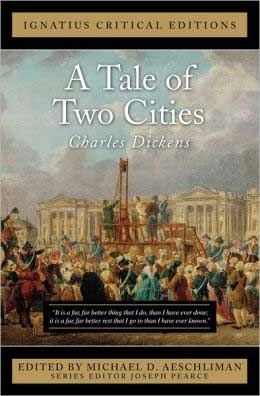 Based on the Ignatius Critical Edition, this series examines, from the Judeo-Christian perspective, the life, the times, and influence of authors of great works in literature .
Based on the Ignatius Critical Edition, this series examines, from the Judeo-Christian perspective, the life, the times, and influence of authors of great works in literature .
Joseph Pearce is currently the Writer-in-Residence and Visiting Fellow at Thomas More College of Liberal Arts in Merrimack, New Hampshire. He is also Visiting Scholar at Mount Royal Academy in Sunapee, New Hampshire. He is also Visiting Scholar at Mount Royal Academy in Sunapee, New Hampshire. He is  co-editor of the Saint Austin Review (or StAR), an international review of Christian culture, literature, and ideas published in England (Family Publications) and the United States (Sapientia Press). He is also the author of many books, including literary biographies of Solzhenitsyn, J. R. R. Tolkien, C. S. Lewis, G. K. Chesterton, and Oscar Wilde.
To learn more about the authors and titles available in the Ignatius Critical Editions
Tags: charles dickens, Doctor Manette, ignatius press, joseph pearce, Madame Defarge, Sydney Carton
This entry was posted on Tuesday, September 10th, 2013 at 10:17 am
You can follow any responses to this entry through the RSS 2.0 feed.
 Episode 15 – Great Works in Western Literature with Joseph Pearce – St. Augustine
Episode 15 – Great Works in Western Literature with Joseph Pearce – St. Augustine
[powerpress]
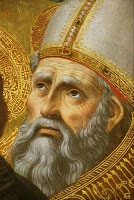 The Confessions of Saint Augustine is considered one of the greatest Christian classics of all time. It is an extended poetic, passionate, intimate prayer that Augustine wrote as an autobiography sometime after his conversion, to confess his sins and proclaim God’s goodness. Just as his first hearers were captivated by his powerful conversion story, so also have many millions been over the following sixteen centuries. His experience of God speaks to us across time with little need of transpositions.
The Confessions of Saint Augustine is considered one of the greatest Christian classics of all time. It is an extended poetic, passionate, intimate prayer that Augustine wrote as an autobiography sometime after his conversion, to confess his sins and proclaim God’s goodness. Just as his first hearers were captivated by his powerful conversion story, so also have many millions been over the following sixteen centuries. His experience of God speaks to us across time with little need of transpositions.
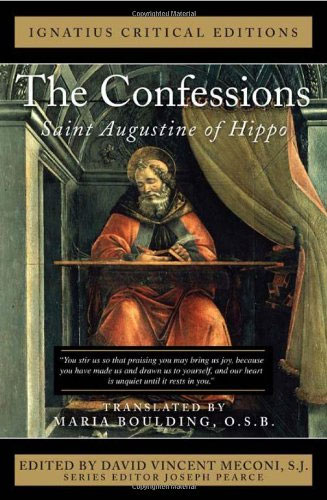 Based on the Ignatius Critical Edition, this series examines, from the Judeo-Christian perspective, the life, the times, and influence of authors of great works in literature .
Based on the Ignatius Critical Edition, this series examines, from the Judeo-Christian perspective, the life, the times, and influence of authors of great works in literature .
Joseph Pearce is currently the Writer-in-Residence and Visiting Fellow at Thomas More College of Liberal Arts in Merrimack, New Hampshire. He is also Visiting Scholar at Mount Royal Academy in Sunapee, New Hampshire. He is also Visiting Scholar at Mount Royal Academy in Sunapee, New Hampshire. He is  co-editor of the Saint Austin Review (or StAR), an international review of Christian culture, literature, and ideas published in England (Family Publications) and the United States (Sapientia Press). He is also the author of many books, including literary biographies of Solzhenitsyn, J. R. R. Tolkien, C. S. Lewis, G. K. Chesterton, and Oscar Wilde.
To learn more about the authors and titles available in the Ignatius Critical Editions
Tags: catholic, catholic podcast, catholic prayer, cathollc spirituality, conversion, joseph pearce, New Hampshire, prayer
This entry was posted on Tuesday, September 3rd, 2013 at 8:28 am
You can follow any responses to this entry through the RSS 2.0 feed.
 Episode 12 – Great Works in Western Literature with Joseph Pearce – Mark Twain
Episode 12 – Great Works in Western Literature with Joseph Pearce – Mark Twain
[powerpress]
Mark Twain’s Adventures of Huckleberry Finn is, according to many critics and fond readers, the great American novel. Full of vibrant American characters, intriguing regional dialects and folkways, and down-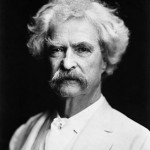 home good humor, it also hits Americans in one of their greatest and on-going sore spots: the fraught issue of racism.
home good humor, it also hits Americans in one of their greatest and on-going sore spots: the fraught issue of racism.
As Huck and Jim float down the Mississippi and encounter all manner of people and situations, and as Huck struggles mightily with his conscience concerning Jim, the novel strongly invites a moral and religious perspective.
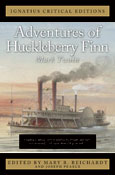 Based on the Ignatius Critical Edition, this series examines, from the Judeo-Christian perspective, the life, the times, and influence of authors of great works in literature .
Based on the Ignatius Critical Edition, this series examines, from the Judeo-Christian perspective, the life, the times, and influence of authors of great works in literature .
Joseph Pearce is currently the Writer-in-Residence and Visiting Fellow at Thomas More College of Liberal Arts in Merrimack, New Hampshire. He is also Visiting Scholar at Mount Royal Academy in Sunapee, New Hampshire. He is also Visiting Scholar at Mount Royal Academy in Sunapee, New Hampshire. He is  co-editor of the Saint Austin Review (or StAR), an international review of Christian culture, literature, and ideas published in England (Family Publications) and the United States (Sapientia Press). He is also the author of many books, including literary biographies of Solzhenitsyn, J. R. R. Tolkien, C. S. Lewis, G. K. Chesterton, and Oscar Wilde.
To learn more about the authors and titles available in the Ignatius Critical Editions
Tags: ave maria university, conscience, humor, ignatius press, joseph pearce, Mark Twain, New Hampshire, oscar wilde, sapientia press
This entry was posted on Friday, August 9th, 2013 at 1:08 am
You can follow any responses to this entry through the RSS 2.0 feed.
Episode 8 – Great Works in Western Literature with Joseph Pearce – Jane Austen
Jane Austen is arguably the finest female novelist who ever lived and Pride and Prejudice is arguably the finest, and is certainly the most popular, of her novels. An undoubted classic of world literature, its profound Christian morality is all too often missed or willfully overlooked by today’s (post)modern critics.
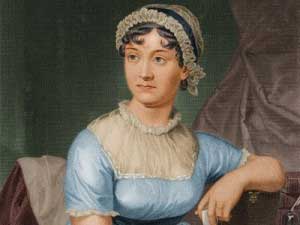 In all things, Jane Austen was a woman of faith. Perhaps nowhere is this more apparent than in Mansfield Park, her most neglected, abused, and misunderstood novel. Like Austen’s other novels, it can be fully appreciated only when illuminated by the virtuous life and Christian beliefs of the author herself.
In all things, Jane Austen was a woman of faith. Perhaps nowhere is this more apparent than in Mansfield Park, her most neglected, abused, and misunderstood novel. Like Austen’s other novels, it can be fully appreciated only when illuminated by the virtuous life and Christian beliefs of the author herself.
Jane Austen saw the follies and foibles of human nature, and the frictions and fidelities of family life, with an incisive eye that penetrates to the very heart of the human condition.
[powerpress]
Based on the Ignatius Critical Edition, this series examines, from the Judeo-Christian perspective, the life, the times, and influence of authors of great works in literature .
Joseph Pearce is currently the Writer-in-Residence and Visiting Fellow at Thomas More College of Liberal Arts in Merrimack, New Hampshire. He is also Visiting Scholar at Mount Royal Academy in Sunapee, New Hampshire. He is also Visiting Scholar at Mount Royal Academy in Sunapee, New Hampshire. He is  co-editor of the Saint Austin Review (or StAR), an international review of Christian culture, literature, and ideas published in England (Family Publications) and the United States (Sapientia Press). He is also the author of many books, including literary biographies of Solzhenitsyn, J. R. R. Tolkien, C. S. Lewis, G. K. Chesterton, and Oscar Wilde.
To learn more about the authors and titles available in the Ignatius Critical Editions
Tags: ave maria university, family life, heart, ignatius critical editions, ignatius press, jane austen, jane austin, joseph pearce, literary biographies, literature, mansfield park, pride and prejudice, sapientia press
This entry was posted on Friday, August 2nd, 2013 at 11:55 am
You can follow any responses to this entry through the RSS 2.0 feed.
 Episode 14 – Herman Melville  and “Moby Dick”  on Great Works in Western Literature with Joseph PearceÂ
Episode 14 – Herman Melville  and “Moby Dick”  on Great Works in Western Literature with Joseph PearceÂ
[powerpress]
A sea adventure, a study of evil, and a cast of fascinating characters, including the 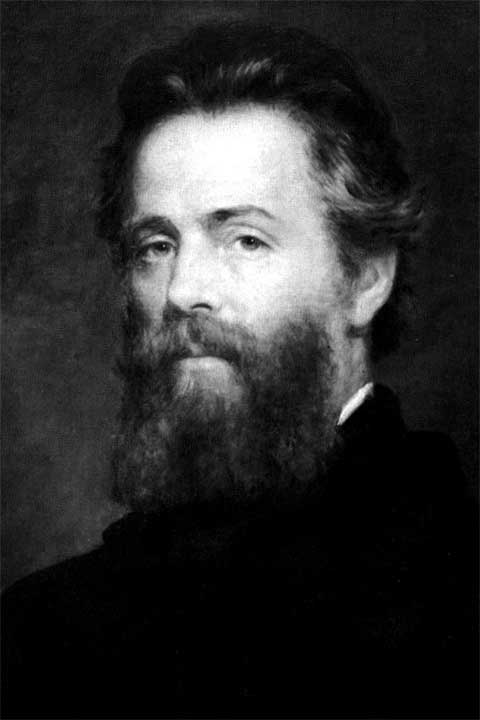 crazed captain who is obsessed with hunting down the whale that maimed him — Moby-Dick is all of this and more.
crazed captain who is obsessed with hunting down the whale that maimed him — Moby-Dick is all of this and more.
Based on the author’s experiences as a sailor, Herman Melville’s probing look into the human heart has been read and analyzed from every angle, including the most absurd. The tragic tale is looked at afresh in this Ignatius Critical Edition, which examines the background and other writings of the author and provides his essay on a work by his literary friend Nathaniel Hawthorne.
Based on the Ignatius Critical Edition, this series examines, from the Judeo-Christian perspective, the life,the times, and influence of authors of great works in literature .
Joseph Pearce  is currently the Writer-in-Residence and Visiting Fellow at Thomas More College of Liberal Arts in Merrimack, New Hampshire. He is also Visiting Scholar at Mount Royal Academy in Sunapee, New Hampshire. He is also Visiting Scholar at Mount Royal Academy in Sunapee, New Hampshire. , as well as co-editor of the Saint Austin Review (or StAR), an international review of Christian culture, literature, and ideas published in England (Family Publications) and the United States (Sapientia Press). He is also the author of many books, including literary biographies of Solzhenitsyn, J. R. R. Tolkien, C. S. Lewis, G. K. Chesterton, and Oscar Wilde.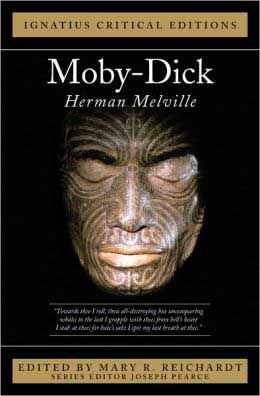
To learn more about the authors and titles available in the Ignatius Critical Editions
Tags: evil, heart, Ignatius Critical Edition, joseph pearce, nathaniel hawthorne, work
This entry was posted on Wednesday, July 24th, 2013 at 11:47 am
You can follow any responses to this entry through the RSS 2.0 feed.
Episode 13 - Bram Stoker and “Dracula”  on Great Works in Western Literature with Joseph Pearce 
[powerpress]
When solicitor’s clerk Jonathan Harker travels to Transylvania on business to meet a mysterious Romanian count named Dracula, he little expects the horrors this strange meeting will unleash. Thus Bram Stoker’s 1897 novel of blood and passion begins, rapidly accelerating from Harker’s nightmarish experiences in Castle Dracula to a full-fledged vampiric assault on late-Victorian London itself. The story, narrated through a collection of 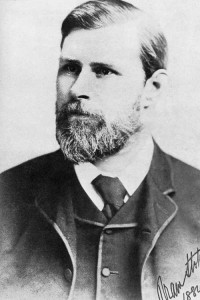 documents-primarily journal entries and letters-chronicles the desperate efforts of a band of gentlemen to protect the virtue of their ladies and lay to rest the ancient threat once and for all.
documents-primarily journal entries and letters-chronicles the desperate efforts of a band of gentlemen to protect the virtue of their ladies and lay to rest the ancient threat once and for all.
Often vacillating wildly between the terrible and the comic, Dracula at the same time brings to life a host of compelling themes: tensions between antiquity and modernity; the powers and limitations of technology; the critical importance of feminine virtue; the difference between superstition and religion; the nature of evil; and, perhaps most compellingly, the complex relationship between ancient faith and scientific enlightenment. More vivid than any of its varied film adaptations, and over a century after its first publication, Dracula still retains its sharp bite.
Based on the Ignatius Critical Edition, this series examines, from the Judeo-Christian perspective, the life,the times, and influence of authors of great works in literature .
Joseph Pearce  is currently the Writer-in-Residence and Visiting Fellow at Thomas More College of Liberal Arts in Merrimack, New 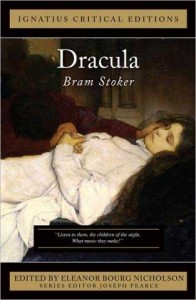 Hampshire. He is also Visiting Scholar at Mount Royal Academy in Sunapee, New Hampshire. He is also Visiting Scholar at Mount Royal Academy in Sunapee, New Hampshire. , as well as co-editor of the Saint Austin Review (or StAR), an international review of Christian culture, literature, and ideas published in England (Family Publications) and the United States (Sapientia Press). He is also the author of many books, including literary biographies of Solzhenitsyn, J. R. R. Tolkien, C. S. Lewis, G. K. Chesterton, and Oscar Wilde.
Hampshire. He is also Visiting Scholar at Mount Royal Academy in Sunapee, New Hampshire. He is also Visiting Scholar at Mount Royal Academy in Sunapee, New Hampshire. , as well as co-editor of the Saint Austin Review (or StAR), an international review of Christian culture, literature, and ideas published in England (Family Publications) and the United States (Sapientia Press). He is also the author of many books, including literary biographies of Solzhenitsyn, J. R. R. Tolkien, C. S. Lewis, G. K. Chesterton, and Oscar Wilde.
To learn more about the authors and titles available in the Ignatius Critical Editions
Tags: bram stoker, dracula, faith, ignatius critical editions, ignatius press, joseph pearce, religion, virtue
This entry was posted on Tuesday, June 25th, 2013 at 6:34 am
You can follow any responses to this entry through the RSS 2.0 feed.

